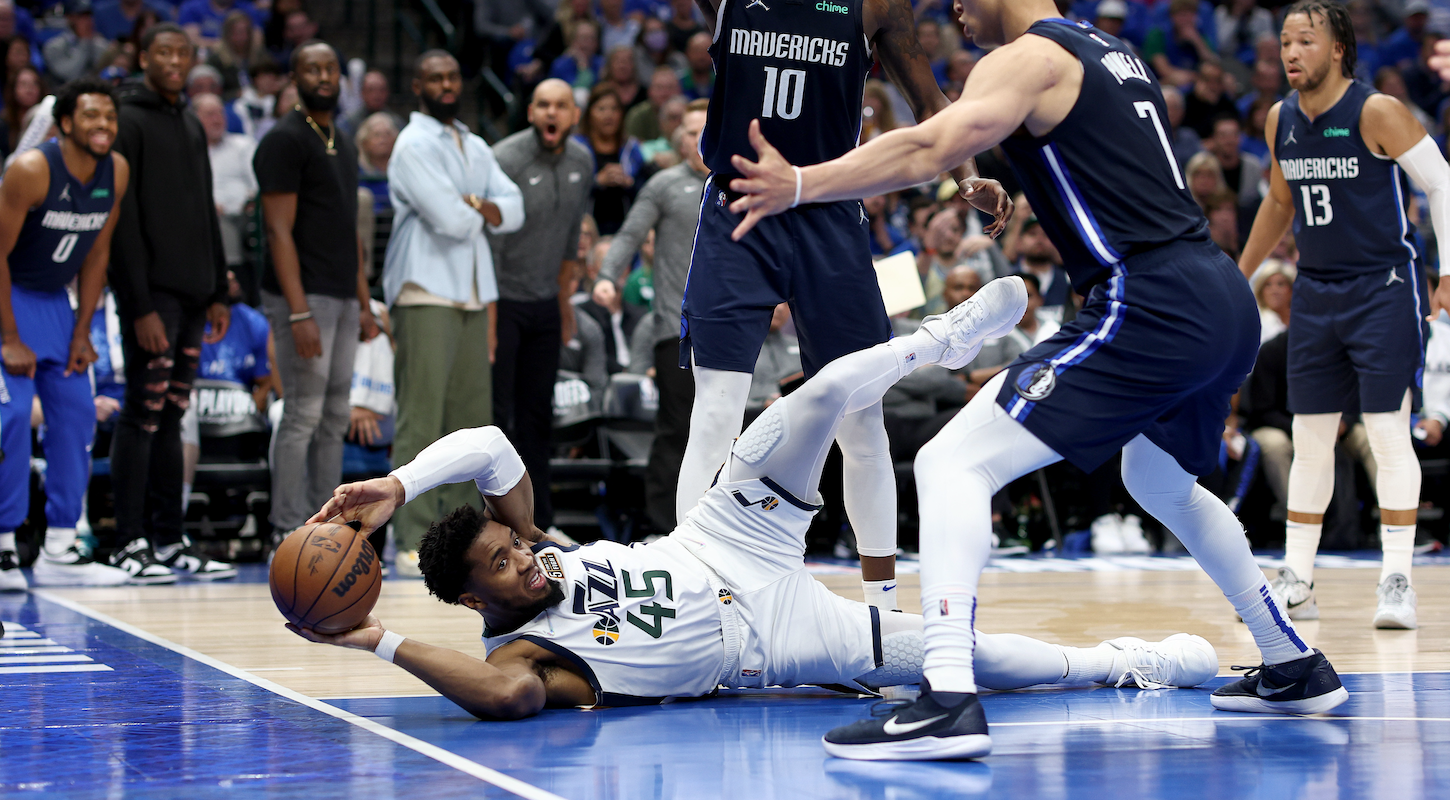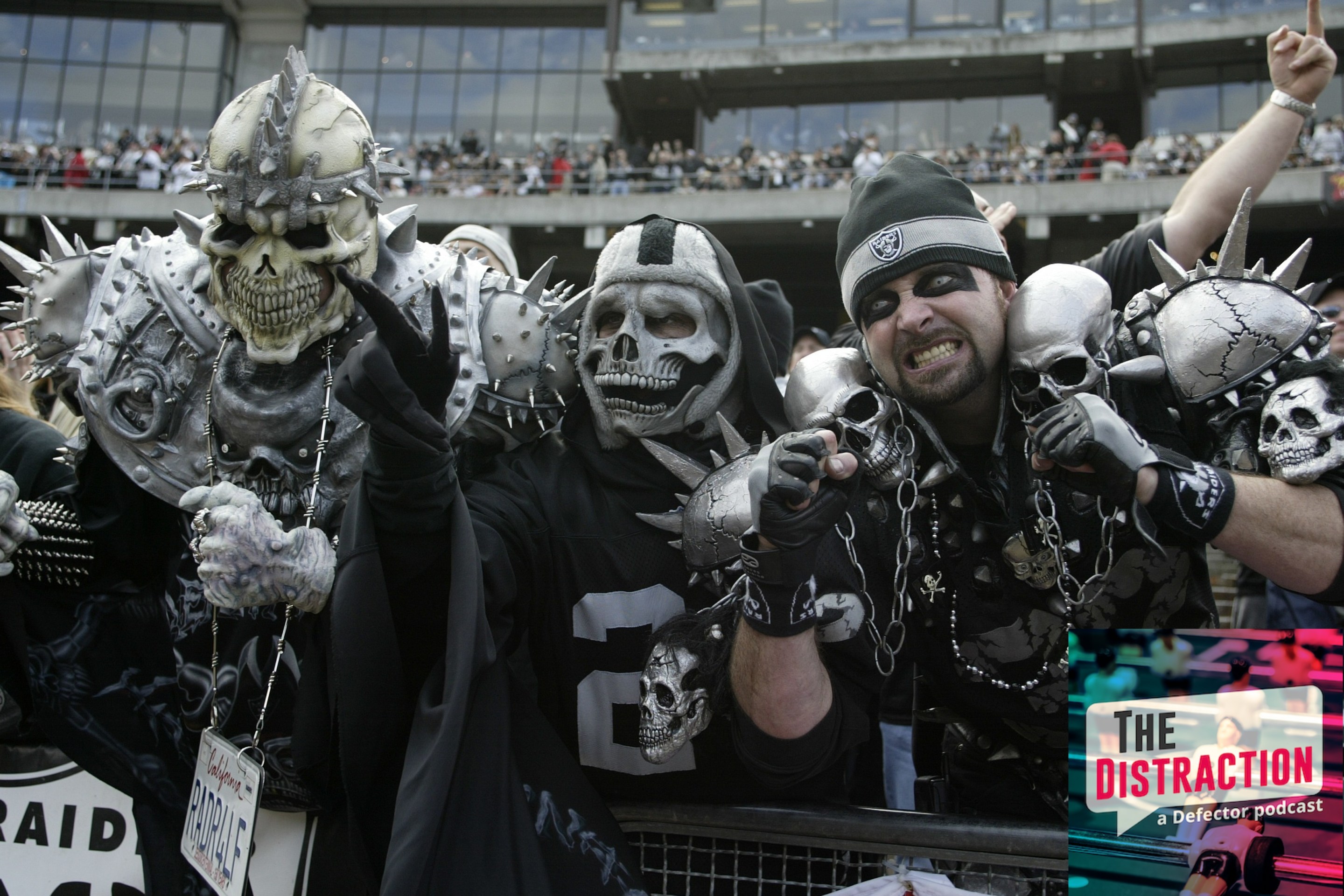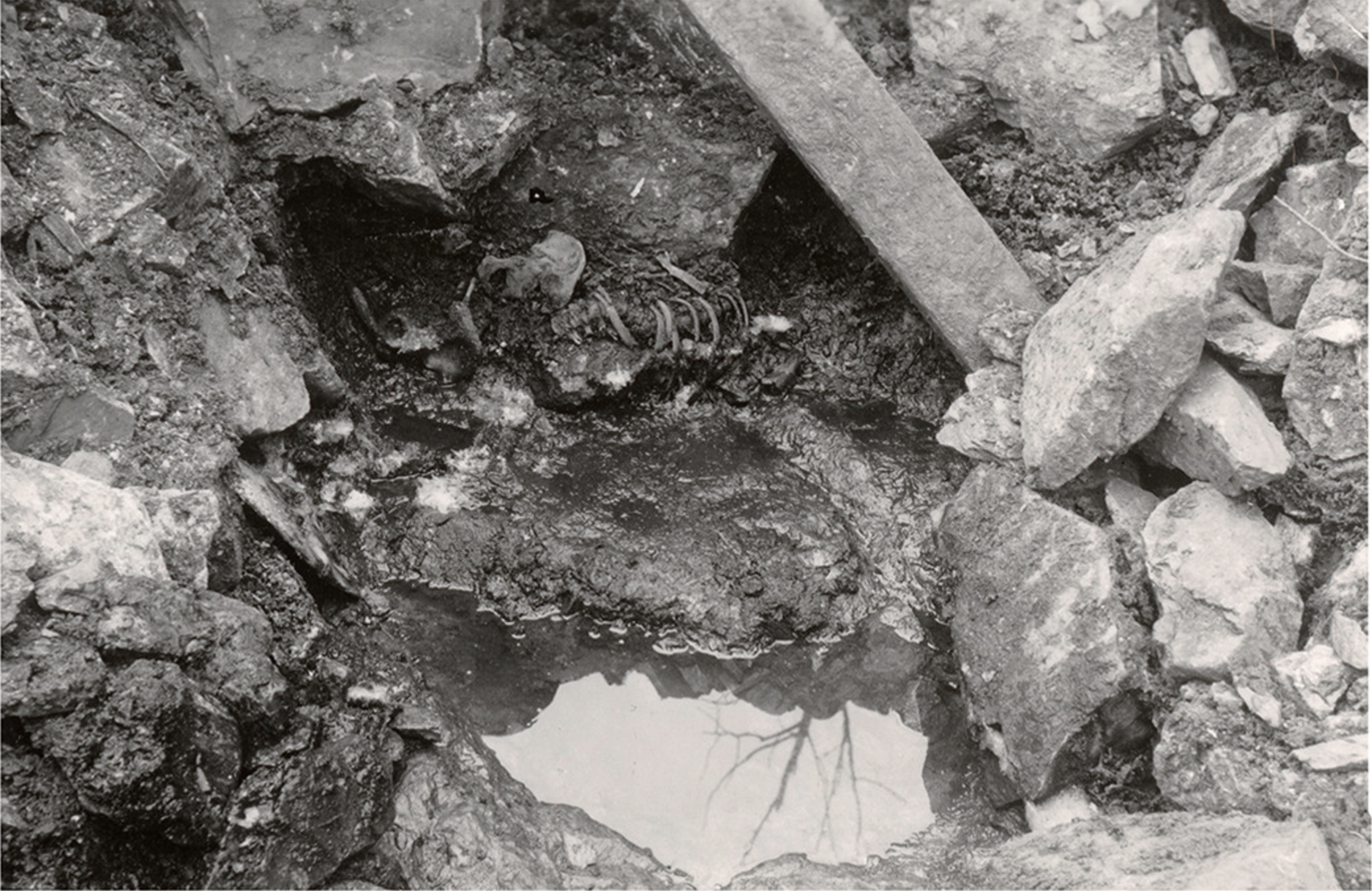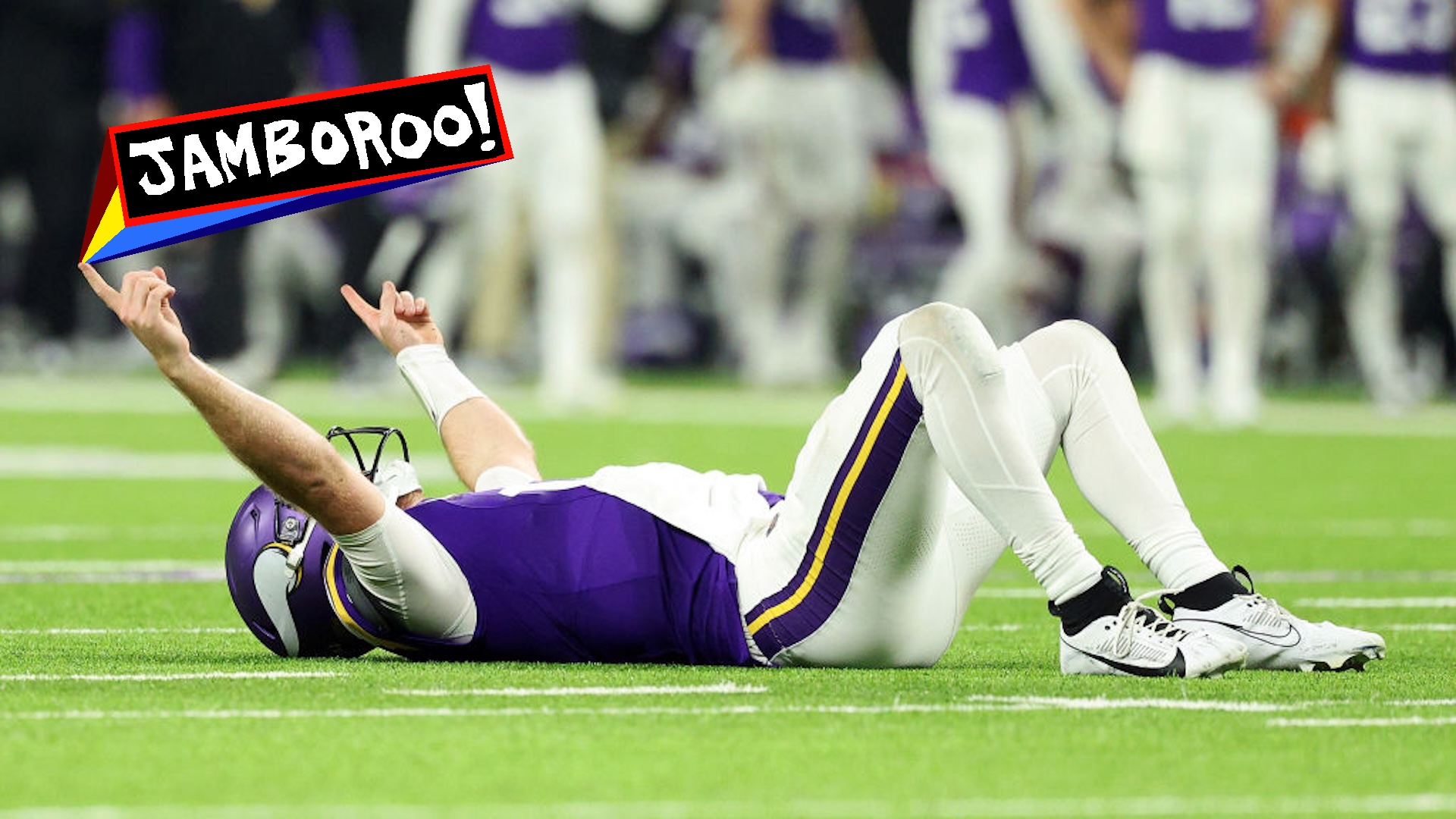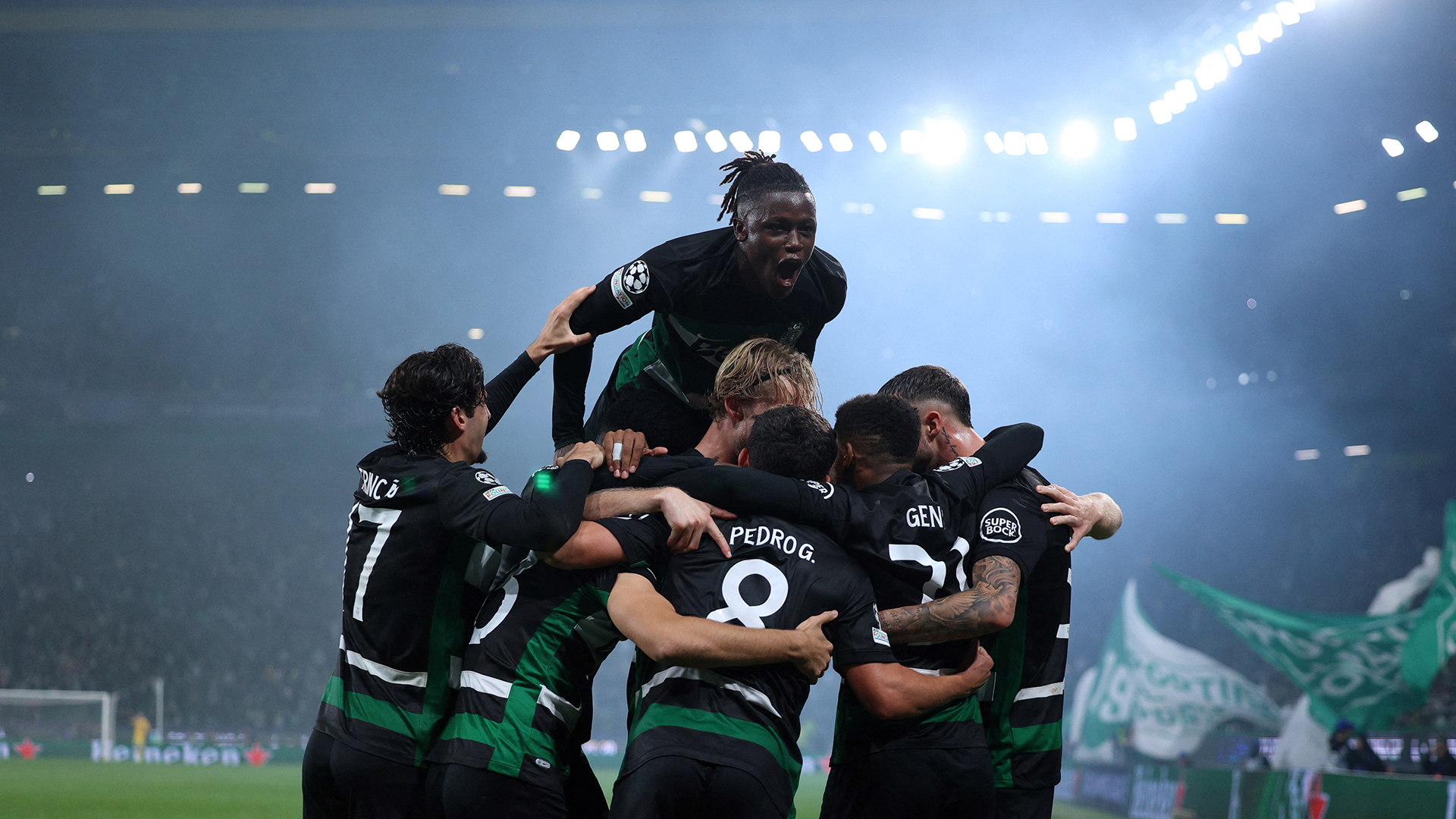A lot of what happens in any basketball game, particularly in the modern NBA with its high volume of high-variance three-point shots, is just, well, stuff happening, for reasons that are only ever partly intentional or understood, and observers projecting a story onto the results. To wit: In the first three quarters of Monday night's Game 5 in Dallas, the Utah Jazz attempted 23 three-pointers. Many of these, most in fact, were normal, reasonably clean looks, generated if not by beautiful, frictionless, improvisational ball-movement (the Jazz don't generally do that) then by perfectly adequate execution of normal stuff. The Jazz missed 20 of them. That is to say, they got nine points, total, out of those 23 shots.
Getting nine points out of any 23 shots in a basketball game is a disaster. The Mavericks played fine or anyway energetic defense, and rebounded misses ferociously, but they didn't do anything special to which to credit the Jazz shooting that badly; again, most of those 23 attempts were the normal kind, the reasonably open kind, the kind the Jazz hit at a 36 percent rate across the 82-game regular season. If you want to argue that the Jazz were, like, psyched out by Dallas's aggression or by the roaring crowd or whatever, Godspeed to you; Utah shot a whole lot better than 18 percent from three in a whole lot of hostile environments against a whole lot of energetic defenses this season.
It may simply be that most of what accounts for those 20 shots not going in is, well, nothing, or no particular thing: Each one of them was like the 64 percent or so of all NBA three-pointers that simply do not go in. If nothing else about Monday night's game had been any different except that the Jazz hit their three-pointers at the rate at which they hit them in the regular season, they would have made eight of the 23 they attempted in those three quarters; those 23 shots would have netted them 24 points. They might still have lost, but it would have been a lot closer. Instead they made three of them.
Maybe that's just what happened! Maybe the Jazz just missed a lot of shots they normally make, and just happened to do so on the same night that the Mavericks—who also shot threes pretty badly in Game 5—happened to make 10 of them in the first three quarters, good for 30 points. This, more or less, is what Jeff Van Gundy is talking about when he says that the NBA is a "make-or-miss league": Sometimes, a lot of the time even, all that accounts for the difference between the winning team and the losing team is that more of the former's shots went in. Sometimes that is because the winning team has better shooters in some durable absolute sense, but also sometimes it is just that a couple of players on one team happened to have bad shooting nights on the same night.
A bad shooting night, in turn, is not some dramatic thing; it is not a meltdown, or doesn't have to be. A three-pointer has to travel a long way. A difference of a millimeter or a millisecond on the flick of a wrist 23 feet from the basket can suffice to differentiate a satisfying splash from an unsightly brick. Even the greatest shooters of all time miss roughly six out of every 10 attempts in live game action, on shooting motions virtually indistinguishable from each other even in high-resolution slow-motion replay. What if it just ... happens? What then? This is the stuff I was thinking about, watching as the Jazz fell behind the Mavericks in Game 5 and just kept falling and falling.
The deficit was a manageable six points after the first quarter. It was possible to look at Utah's 0-for-7 three-point mark and expect simple regression to the mean to tighten things up, even in the absence of any particularly inspired adjustments or individual heroics. By halftime they'd scored a measly 36 total points, were a ghastly 2-for-17 from beyond the arc, and trailed by 16. Things were getting a little silly.
The Jazz defense funneled Dallas's Luka Doncic into trouble in the lane; he made a panicky jump pass toward a covered Spencer Dinwiddie; Utah's Royce O'Neale, alert and in good position, got his hand in the ball's way and deflected it, a good defensive play. It sailed safely out of bounds, off him. On the restart Doncic, again well-defended, banked home a running one-legged fadeaway that had no business going in, turning what by all rights should have been a turnover to the Jazz into two deeply improbable points for the Mavs. On Utah's ensuing possession, the Mavs committed a dumb foul, then allowed a clean, composed three-point attempt to Bojan Bogdanovic, one of the best shooters on the floor. He missed it.
That became the pattern of the middle quarters. Stuff that might typically break Utah's way did not; stuff that typically would not break Dallas's way did. Half a minute after the above exchange, the Jazz pinged the ball around smartly and with urgency, creating a wide-open attempt from the top of the key for O'Neale, who shot a sterling 39 percent from three on the season; he missed it. On Dallas's ensuing possession, Doncic, with the shot-clock winding down, heaved up an awkward double-clutched fart of a shot from the free-throw line; it went in, plus a foul on Bogdanovic. Doncic missed the free-throw (a break Utah's way!), the Jazz hurried the ball forward in transition, and a couple of smart passes got O'Neale an even wider-open look from the corner—the best shot in basketball. He missed it. In the third quarter, a virtually identical sequence of passes got Dallas's Jalen Brunson the exact same shot in the exact same place; he swished it. That's just how it was going.
In the background of what felt like innumerable Looney Tunes buckets by Doncic, the Jazz kept shooting the shots they normally shoot, and missing them. By the middle of the third quarter it was like a waking nightmare or a delirious dream or a black comedy, depending on your sympathies. Doncic, a career 34 percent shooter from three, bombed in a hilariously irresponsible step-back from the left wing, and then another, from the same spot, even more tightly defended; he paused to shimmy his shoulders after it splashed through the hoop. By the time he strolled into a third from the same spot with about 3:40 left in the quarter, anyone in the building would have bet their home on it going in, and it did, to give the Mavs a 33-point lead. The Jazz shot 1-of-6 from three in that quarter. Four of them were utterly wide open.
The whole fourth quarter was garbage time. The Jazz shot 0-for-7 from three in it. It was like someone was playing a practical joke on them. I wasn't even rooting for Utah—if anything, I'd prefer for the newer and more fun Mavericks to advance—and still felt a sort of growing horror at the cruel asymmetry of it all. If I were a Jazz fan, I'd have torn my own head off.
They can still advance; that is possible, in strict terms and also practical ones. It may have felt like the fourth game of a sweep but it was, after all, Game 5 of a series played evenly to that point, and as players and coaches like to say, a 25-point win counts the same as a one-point win. The Jazz can fend off elimination in Game 6, Thursday night, in front of a frenzied home crowd. The callow Mavericks can barf and collapse in Game 7 back in Dallas on Saturday. The wrong assortment of Mavs can pick up catastrophic injuries or fouls or COVID test results; the shots that should have gone in but didn't might; the shots that had no business going in but did might not. Anything can happen, that is to say—or not happen, and continue not happening, over and over again, while you run back and forth like an idiot, fruitlessly, in front of an audience of millions. Any awful thing.
